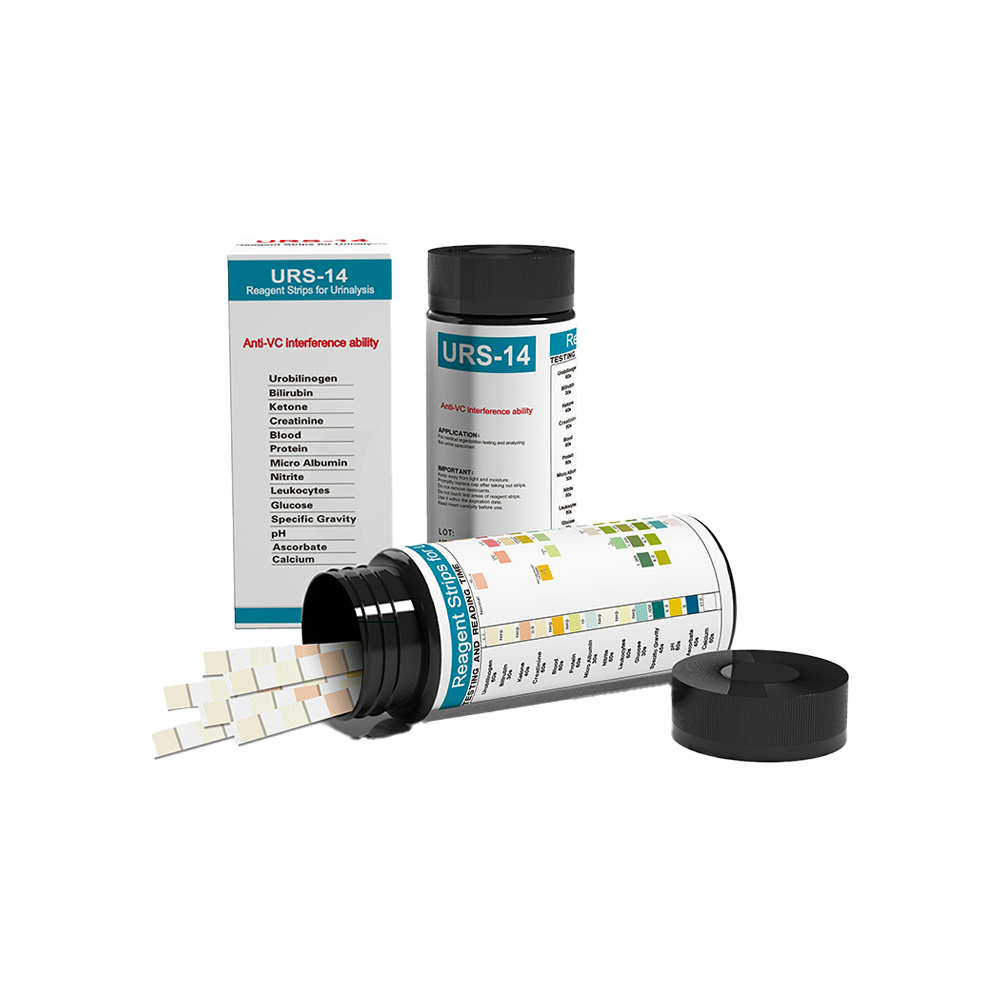About Caped
Tianjin Caped Medical Equipment Co.,Ltd. is a biotechnology company specializing in the R&D, production, sales, and service of In Vitro Diagnostic (IVD) products,with 20 years of industry experience. We provide comprehensiverapid diagnosis managementsolutions, helping healthcare systems worldwide to improve their efficiency and patient care.
We specialize in the development of high-quality IVD products, including:
- Diagnostic Reagents(Test Strips/Test Kits for Human or Animal)
- Biological Raw Materials
- Diagnostic Equipment
CAPED dedicated to offering customers comprehensive and diversified IVD products and services. Customer needs guide our direction, and we are steadfast in keeping pace with the market, aspiring to become leaders in the field of In Vitro Diagnostic.
Product Series
Featured Products
Why Caped
Professional Manufacturers ,Sell Independently
Efficient Production &Timely Delivery
20 Years Accumulation, Industry Leadership
International Famous Brand Cooperation
Global Sales Network
Professional R&D Team, Customized Design
Latest News and Blog

5 Facts You Need to Know about Mycoplasma pneumoniae
In recent times, there has been a notable increase in cases of pediatric pneumonia linked to Mycoplasma pneumoniae (MP) in several countries, including China, Denmark, France, the Netherlands, and specific regions in the United States. This rise has raised concerns on a global scale. Although MP is known to cause occasional outbreaks, experts believe that the current increase may be more significant than usual, particularly in Europe and Asia, where reported cases have quadrupled compared to previous years. In order to understand what MP is all about, here are 5 facts listed below. 1. MP infections typically present with mild symptoms such as low-grade fever, dry cough, mild shortness of breath (especially during physical activity), and fatigue. The symptoms of Mycoplasma pneumonia (MP) differ from those caused by typical pneumonia bacteria like Streptococcus and Haemophilus. MP infections generally do not exhibit severe shortness of breath, high fever, or productive cough. Instead, patients commonly experience low-grade fever, dry cough, mild shortness of breath (especially during physical activity), and fatigue. MP can sometimes resemble an upper respiratory infection or common cold rather than a lower respiratory infection or pneumonia. The most prominent sign of infection is a dry cough. Other possible symptoms may

Cholera’s Hidden Shield: How Bacteria Outsmart Viruses to Fuel Epidemics
1.The Invisible War: Cholera vs. Phages When we think of cholera, contaminated water and deadly outbreaks come to mind. However, behind the scenes, Vibrio cholerae faces a microscopic battle against viruses called bacteriophages (phages). These phages don’t just infect bacteria—they can sway entire epidemics by limiting outbreaks. 2.The 7th Pandemic’s Global Surge Since the 1960s, the seventh cholera pandemic has spread worldwide through resilient “7PET” strains. Remarkably, these bacteria evolved defenses against phages, using mobile genetic elements as anti-viral tools. But why do some strains evade phages so effectively? 3.The 1990s Latin American Outbreak: A Mystery In the early 1990s, a massive cholera epidemic struck Peru and Latin America, infecting over 1 million people. The culprit? The West African South American (WASA) lineage of V. cholerae. Yet, its explosive success remained unexplained—until now. 4.EPFL’s Breakthrough: Unlocking Cholera’s Defense Secrets Researchers at EPFL’s Global Health Institute, led by Melanie Blokesch, discovered the WASA lineage’s secret: multiple immune systems protecting it from phages. Published in Nature Microbiology, their study reveals how these defenses likely fueled the Latin American outbreak. 5.Bacterial Immune Systems: A Multi-Layered Shield Testing Peruvian strains against phages like ICP1—a key virus in curbing outbreaks—the team found WASA strains uniquely

Breakthrough Drug Targets Deadly Mycobacterial Infections in Vulnerable Patients
1.A New Weapon Against a Deadly Cousin of TB Scientists at Hackensack Meridian’s Center for Discovery and Innovation (CDI) have engineered a promising drug candidate to combat Mycobacterium abscessus—a rising threat to immunocompromised individuals and those with lung diseases like cystic fibrosis. Published in PNAS, their work reimagines a classic antibiotic to tackle this resilient infection. 2.The Rifamycin Revolution: Overcoming Decades-Long Resistance Rifamycin antibiotics, developed in the 1960s, once revolutionized tuberculosis (TB) treatment. However, M. abscessus evolved resistance to these drugs, leaving vulnerable patients with limited options. Worse, cystic fibrosis patients often face dangerous drug interactions with existing treatments. 3.Five Years of Precision Drug Design Using methodical chemical redesign, the team modified rifabutin—a rifamycin antibiotic—to overcome resistance. Over five years, they crafted analogs that maintain potency, improve oral absorption, and eliminate harmful drug interactions. Two compounds stood out in lab and animal tests, showing exceptional efficacy against M. abscessus. 4.Beyond M. abscessus: A Broader Impact While targeting M. abscessus—a growing danger in cystic fibrosis communities—the new rifamycins also show promise against other mycobacteria, including TB and Mycobacterium avium complex (MAC). This dual potential could reshape treatment for multiple stubborn infections. 5.Collaboration Across Continents The breakthrough stems from a decade-long global

Malawi’s UTI Crisis: Soaring Antibiotic Resistance Demands Urgent Action
1.Alarming Resistance Cripples UTI Treatment A growing resistance to antibiotics is crippling urinary tract infection (UTI) treatment in Malawi. New research reveals nearly half of women with symptoms at Zomba Central Hospital had multi-drug resistant infections, signaling a public health emergency. 2.Study Exposes Shocking Prevalence Researchers at Mzuzu University found 48.5% of women assessed had UTIs—far exceeding the global average of 14–30%. Published in the National Library of Medicine, the study underscores systemic issues like poor hygiene, limited healthcare access, and antibiotic misuse. 3.First-Line Drugs Fail, Last-Resort Options Falter First-line antibiotics ampicillin and ceftriaxone showed 87% and 77% resistance rates, respectively. Worse, the multi-drug resistant bacterium Serratia marcescens emerged, with 100% resistance to common drugs and reduced susceptibility to last-resort options like meropenem. 4.Young Women at Highest Risk The study analyzed 340 patient records, focusing on women aged 15–45, who bore over half of UTI cases. Researchers urge targeted guidelines, including hygiene education, contraceptive reviews, and enhanced antenatal screening. 5.Malawi’s Broader AMR Crisis Antibiotic resistance claims 27.3 deaths per 100,000 people in Malawi, with 15,700 deaths linked to drug-resistant infections. Despite surveillance efforts, experts warn the crisis is outpacing solutions. 6.Self-Prescription Fuels Resistance Victor Mithi, president of Malawi’s Society of
Global Partners
















